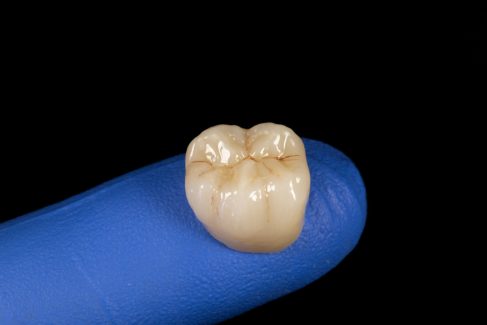- 37 Castle Street, Salisbury SP1 1TT
- info@bonddentalclinic.co.uk
- 01722 417 007
- Mon - Fri: 09:00 - 1700
Dental Crowns
Simply put, a dental crown is a ‘cap’ that fits over the entire surface of the tooth with the functional effect of a reinforcing ferrule.
The process of making a crown involves reshaping the tooth to the desired shape.
Impressions or intraoral scans of the tooth preparation are then taken. This information is sent to the laboratory where the crown is produced.
Once completed, a crown is fitted over the tooth surface and cemented in place using dental cements. When crowns are bonded to the underlying tooth structure, they provide considerable added strength to the tooth.

Crowns can be made of porcelain, zirconia, gold or porcelain fused to metal.
The shape, size, colour and surface characteristics of a crown are closely matched to the surrounding teeth.
Porcelain crowns are fabricated by master ceramists to the highest specifications and once fitted, provide a seamless and permanent restoration to a tooth.
Crowns are usually used to:
The materials we use to make crowns are biocompatible and non-allergenic.
Dental Onlays
Dental onlays could be described as laboratory constructed partial crowns. They are generally composed of either gold or ceramic and when cemented over a tooth an onlay forms a very strong bond with the tooth surface.
In cases where a significant amount of tooth structure is missing, a filling may act like a wedge and result in breaking the remaining tooth whereas an onlay can exhibit similar reinforcement qualities as a crown. However, in optimal cases, the benefit of using an onlay where appropriate is that it is a more conservative option requiring less tooth removal at the preparation stage.
Pictures of gold onlay below:



Please feel free to contact us to explore options further.